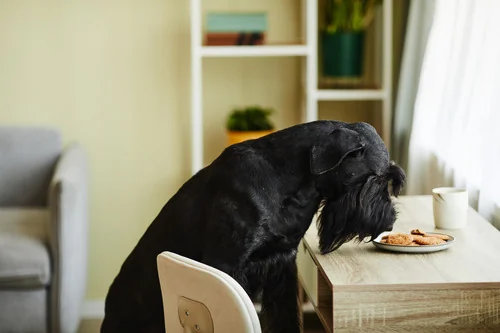Xylitol is a common sweetener found in many human foods and products, but it poses a severe threat to dogs. Understanding the dangers of xylitol, recognizing the symptoms of xylitol poisoning, and knowing what to do if your dog ingests this toxic substance are crucial for every dog owner. In this article, we will explore the toxicity of xylitol, its symptoms in dogs, and the appropriate treatment steps. If you suspect your dog has ingested xylitol, call Palos Animal Hospital at (708) 448-6600 or request an appointment online.

What is Xylitol and Why is it Dangerous to Dogs?
Xylitol is a sugar substitute commonly used in sugar-free products like chewing gum, candies, baked goods, and even some peanut butter. While safe for human consumption, xylitol is extremely toxic to dogs. Unlike humans, a dog’s pancreas confuses xylitol with real sugar, causing a rapid release of insulin. This sudden surge in insulin can lead to life-threatening hypoglycemia (low blood sugar) and other severe health issues.
Common Products Containing Xylitol
Many everyday products contain xylitol, often without dog owners realizing the danger. Some common sources include:
- Sugar-free gum
- Sugar-free candies
- Baked goods
- Peanut butter
- Toothpaste and mouthwash
- Over-the-counter vitamins and supplements
Knowing which products contain xylitol and keeping them out of your dog’s reach is essential to prevent accidental ingestion.
Symptoms of Xylitol Poisoning in Dogs
Recognizing the symptoms of xylitol poisoning early can be the difference between life and death for your dog. Symptoms can appear as quickly as 10-30 minutes after ingestion and may include:
- Vomiting
- Weakness and lethargy
- Loss of coordination or difficulty walking
- Seizures
- Collapse
- Coma
If you notice any of these symptoms and suspect your dog has ingested xylitol, seek veterinary care immediately. The severity of the symptoms depends on the amount of xylitol ingested and how quickly it is metabolized.
Treatment for Xylitol Poisoning in Dogs
Prompt veterinary treatment is crucial if your dog has ingested xylitol. Here’s what you can expect during the treatment process:
Immediate Actions
When you call Palos Animal Hospital, provide as much information as possible, including the type of product ingested, the amount, and the time of ingestion. The veterinarian may recommend bringing your dog in immediately for examination and treatment.
Veterinary Care
Once at the veterinary clinic, the treatment may involve:
- Inducing vomiting to remove xylitol from the stomach
- Administering activated charcoal to prevent further absorption
- Intravenous (IV) fluids to maintain hydration and support blood sugar levels
- Monitoring and regulating blood glucose levels
- Administering medications to protect the liver and manage symptoms
Long-term Monitoring
Depending on the severity of the poisoning, your dog may need to stay at the clinic for several hours or days for monitoring and supportive care. Regular blood tests may be required to ensure that your dog’s liver and blood sugar levels are stabilizing.
Preventing Xylitol Poisoning in Dogs
Prevention is the best way to protect your dog from xylitol poisoning. Here are some tips to keep your dog safe:
Safeguarding Your Home
Store xylitol-containing products out of reach of your dog. Be aware of hidden sources of xylitol in everyday products. Educate family members and guests about the dangers of xylitol to dogs.
Being Vigilant Outdoors
When walking your dog, be cautious about what they may pick up and eat. Discarded chewing gum and other litter can pose a significant risk.
Educating Others
Spread awareness about the dangers of xylitol among fellow dog owners. The more people know, the better protected all dogs will be.
Why Choose Palos Animal Hospital?
At Palos Animal Hospital, we are dedicated to the health and well-being of your pets. Our experienced team is here to provide the highest quality care, from emergency treatment to routine check-ups. If you suspect your dog has ingested xylitol, contact us immediately at (708) 448-6600 or request an appointment online.
Comprehensive Care
Our comprehensive veterinary services include:
- Emergency care for poisoning and other urgent issues
- Preventative care to keep your pets healthy
- Advanced diagnostics and treatments
Compassionate Staff
Our compassionate staff understands the bond between you and your pet. We treat every patient with the utmost care and respect, ensuring they receive the best possible treatment.By following the guidelines in this article and staying vigilant about xylitol exposure, you can help keep your dog safe and healthy. Always remember, if you have any concerns about your pet’s health, reach out to Palos Animal Hospital for professional advice and care.


